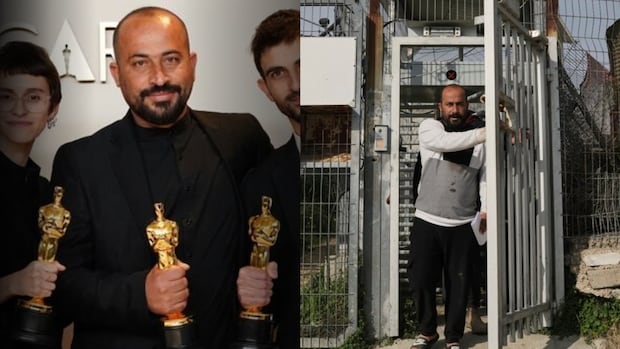Oscar-winning Palestinian director Hamdan Ballal believes he is being deliberately targeted by Israeli settlers and soldiers in the occupied West Bank following the success of his film No Other Land, which won best documentary at the prestigious awards ceremony earlier this month.
“Because of that, they’re attacking me,” he said in a telephone interview with CBC News, a day after he was released from a police station in the Israeli settlement of Qiryat Arba, near Hebron.
“They punish me because I take this message [to the outside world],” he said from his home in Masafer Yatta, a cluster of Palestinian villages in the south Hebron hills.
The film, which Ballal co-directed with fellow Palestinian Basel Adra and Israelis Yuval Abraham and Rachel Szor, documents Palestinians in Masafer Yatta living under occupation and struggling to hold on to their land.
Israel captured East Jerusalem and the West Bank from Jordan in 1967. Today, there are some 500,000 Jewish settlers living in the West Bank alone, even though they’re considered illegal under international law by much of the world.
About three million Palestinians live in the West Bank, and tensions have escalated during the war in Gaza.
Ballal says he was detained after being badly beaten by a settler he identified as Shem Tov Luski and two soldiers after he’d been filming Israeli settlers harassing Palestinian villagers on Monday.
He says his ordeal began around 6 p.m., when a fellow resident in his home village of Susiya phoned to alert him to the Israelis’ presence.
“When I got there, the settlers [were throwing] stones and destroyed the water tank, the cars there,” he said.
When Ballal left to check on his own family he says he was followed by Luski and the two soldiers, all armed, who continued beating him even when he had fallen to the ground.
He says his requests for medical attention were ignored, and that he was eventually blindfolded and taken to a location where he was held overnight.
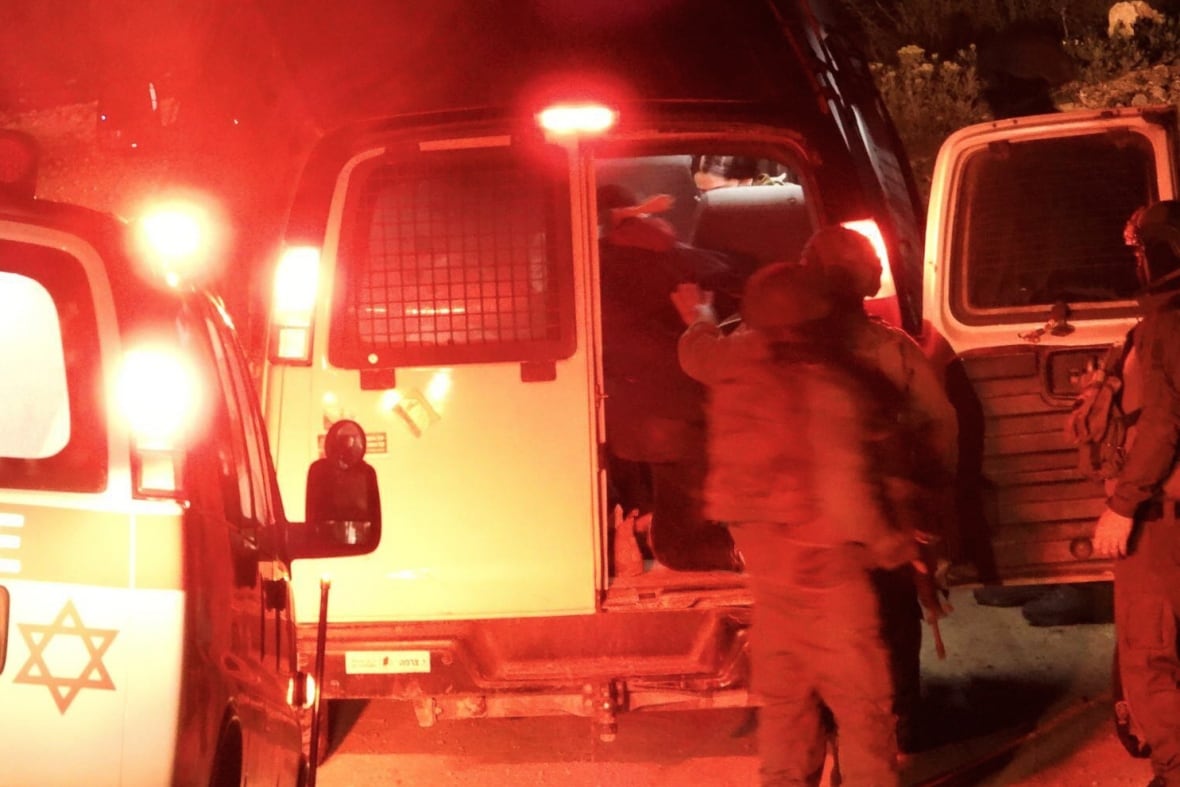
Director says he feared he would be killed
The head of the local council in Susiya says the trouble began when settlers attacked a gathering taking place for Iftar, which marks the end of the daily fast during Ramadan.
Activists from a group called the Center for Jewish Nonviolence called by villagers to the scene said they were also attacked by settlers, showing video to various news agencies.
Luski, the settler identified by Ballal, lives in a nearby settlement outpost called ancient Susiya. The Israeli human rights group B’tselem documented him harassing Ballal and other Palestinians last summer.
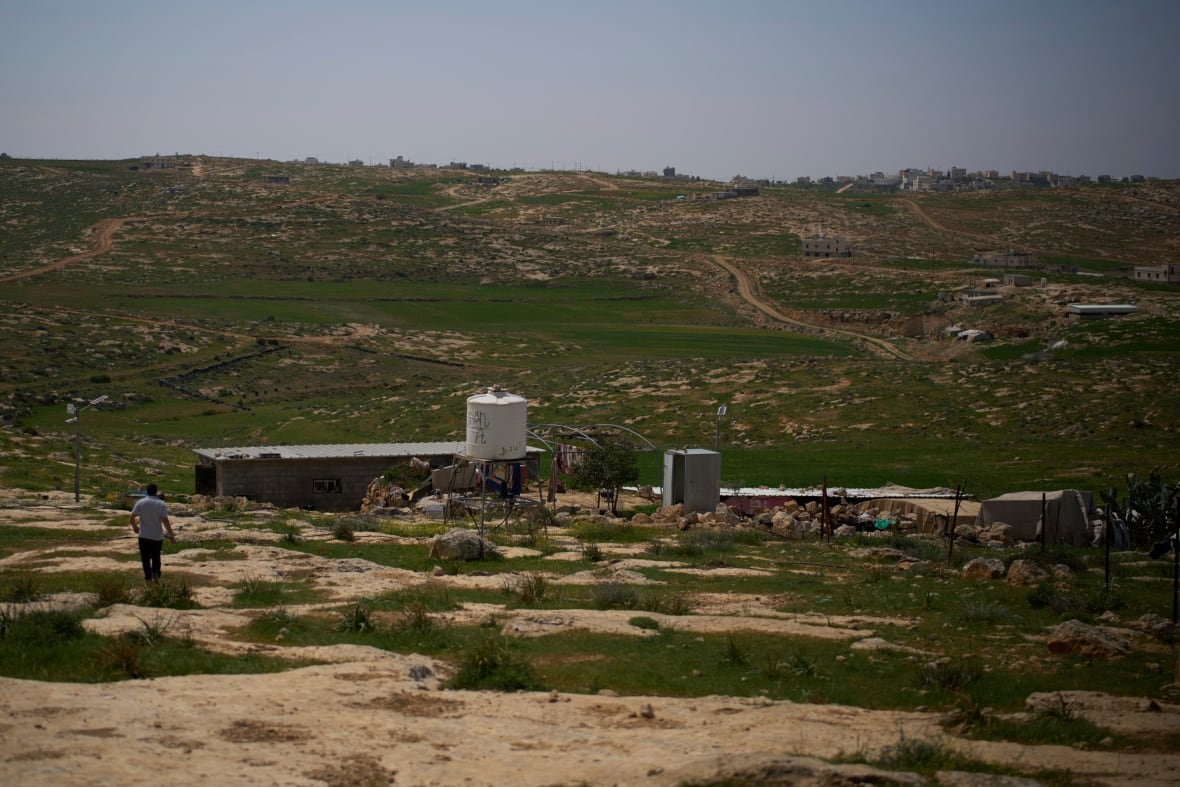
Ballal says he has been threatened by Luski and other settlers before, but that this time he was genuinely afraid he would be killed.
“After the Oscar, it became worse,” he said.
In response to a query by CBC News, the Israel Defence Forces (IDF) said its soldiers had transferred three Palestinian “detainees” to police “for questioning on suspicion of rock hurling, property damage and endangering regional security.”
The statement also called claims that they had been beaten during the night at an IDF detention facility “entirely baseless” and said that IDF forces “facilitated medical treatment” for the detainees after their transfer to the Israel police.
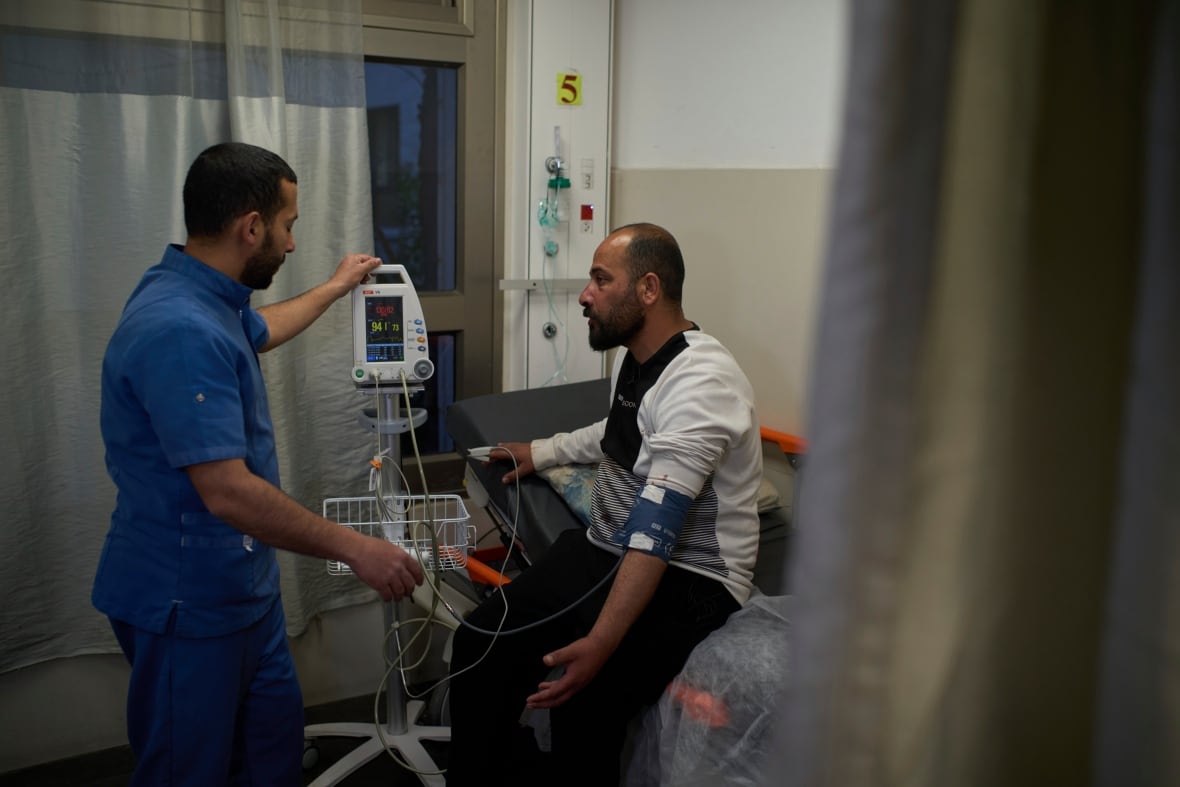
‘Why we made this movie’
Palestinians living in the occupied territories have been faced with increasing levels of violence by hard-line Jewish settlers in recent years, according to human rights groups, especially those living in “outposts” linked to larger settlement blocks.
Palestinians, rights organizations and activist groups who send monitors to the West Bank say the Israeli army regularly fails to stop violent and intimidating behaviour by the settlers.
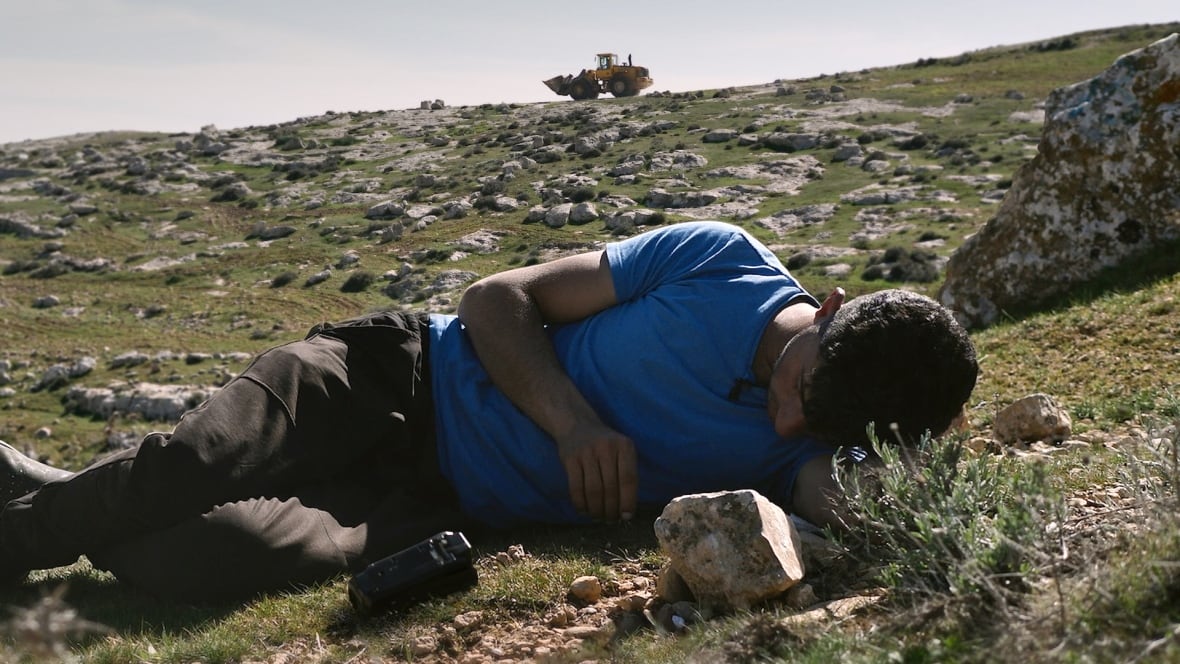
The war in Gaza has sparked a surge of violence in the West Bank, with the Israeli military carrying out military operations that have killed hundreds of Palestinians and displaced tens of thousands. There has been a rise in settler violence as well as Palestinian attacks on Israelis.
Asked if he thinks his film might change things, Ballal said he hopes so.
“Until now nothing changed on the ground,” he said. “But that’s why we made this movie.”
The Current23:26Oscar win for film about Israel’s destruction of a West Bank community
No Other Land won the Oscar for best documentary feature on Sunday. It tells the story of a Palestinian community displaced by Israel, to make way for a military firing range in the West Bank. Two of its directors, Palestinian Basel Adra and Israeli Yuval Abraham, spoke to Matt Galloway in December about their struggle to tell this story in Israel and beyond.


